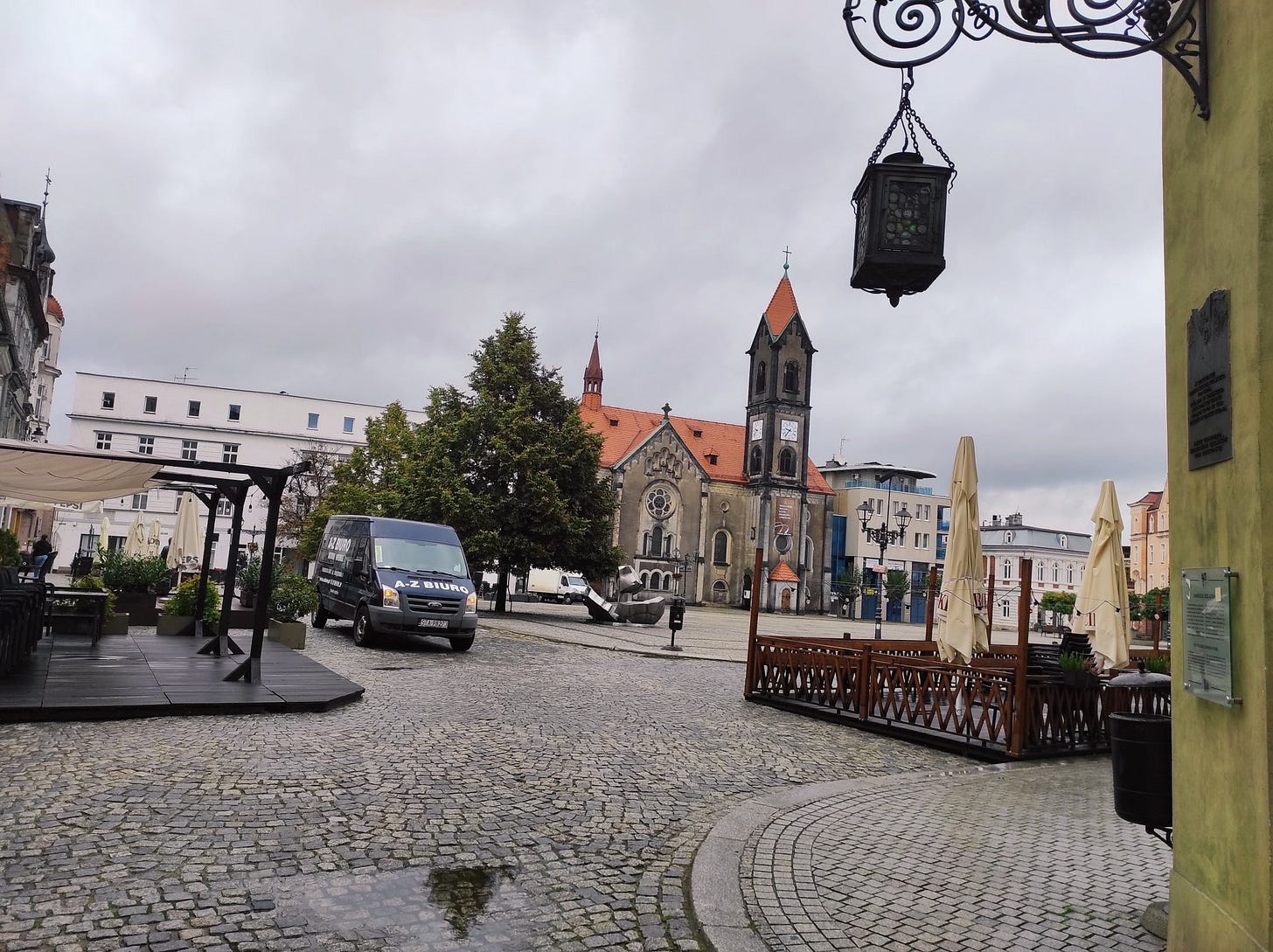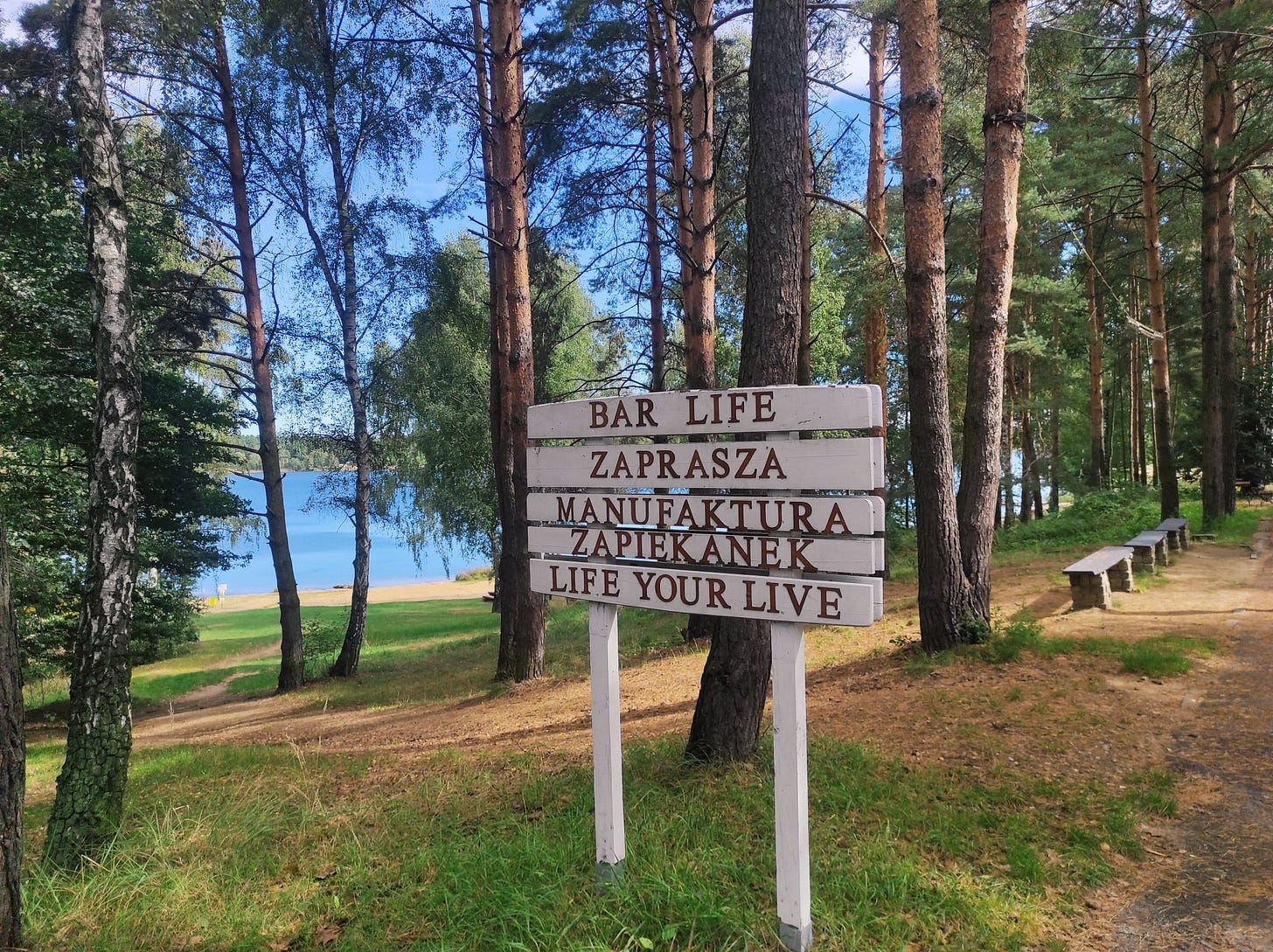September Diary
Hello,
Obligatory shilling. This month at THE ZONE I wrote about the responsibilities of edgelords, jailhouse rap, why the establishment are true believers, Malcolm Gladwell, “Christopher Hitchens Resurrected”, right-wing cancel culture, my distant familial connection with a rock star, marginopholia, why I stopped identifying as a conservative and the decline of Sweden as a social democrat utopia.
I wrote for The Critic about Reform UK and the USA, viral horrors, Putin’s drones, Charlie Kirk and political violence, Peter Mandelson, drug smuggling and crime podcasts, Dickie Bird, “the extremely online right”, Digital ID and the Riyadh Comedy Festival.
I wrote for American Conservative about the rise and fall of Keir Starmer.
Finally, and most proudly for me, I wrote about Andrey Kurkov for the Washington Examiner.
22 pieces? That might be one too many.
Home front 1. This month marked twelve years since I came to Poland. That is now more than a third of my life. It has been the best third of my life (being a child was fun but school absolutely sucked).
In case you missed it, I previously listed forty things I love about Poland. For my tenth anniversary since coming here, I wrote about my life as an English teacher and writerin my first Polish hometown of Tarnowskie Góry. I’ve since left Tarnowskie Góry, which is quite sad, but I’m no longer single and aimless, which is very good.
Home front 2. My dad visited Poland this month, which is always a lot of fun. In England, we always visit the same stretch of canal. In Poland, we always walk to the same lake. There’s something very special, for me, about returning to the same places as different people.
Bad politics. Noah Carl writes a terrific defence of principle for Aporia:
The second reason to reject the friend–enemy distinction is that it is antithetical to the Western (or at least Anglo-Saxon) tradition. Instead, it is the organising principle for politics in much of the Third World. As a popular Latin American saying puts it: “For my friends, everything; for my enemies, the law”.
There are many backward countries where the modus operandi for politicians is: get elected; then use the levers of power to reward cronies and other ethnically or ideologically-aligned interest groups, while punishing your political enemies. This way of doing things, which is common to both the left and the right, is generally known as “corruption”.
Reading revolutionised. Wessie du Toit reflects on the perversion of literacy:
The decline of reading in our day represents a move toward the historical norm, not away from it. The new element is the circumstances in which the decline is happening. The effect of networked digital devices is brutally obvious. During the 2010s, readers seemed to share an almost universal realization that to read in a deep and sustained way required of them more effort than it once had. We felt our brains being rewired in real time, our attention becoming weaker even as powerful new demands were placed on it. Social media platforms are exciting centers of discourse, the lira popular of our time. They are also akin to a drug epidemic, with interfaces designed to hijack the limbic system and make the mind dependent on their rapid patterns of stimulation.
I’m as guilty of this as anyone — reading and writing hyperactively. Instead of wringing my hands, I should clean my mental room.
Assimilation for the nation. Chris Bayliss reflects on remaking a population:
Britain has been gambling for decades that it has the capacity to assimilate large numbers of new arrivals into the general population. As cracks have begun to emerge in the national edifice, successive governments have continually raised the stakes, expanding not just the numbers, but the variety of places of origin.
Death of the consensus. Will Solfiac dissects the intellectual case for mass migration:
Public opinion is shifting fast; I believe we are currently in the early stages of a respectability cascade towards a new consensus that the immigration policies of the last few decades have been a disaster. Those who consider themselves sensible truth tellers on immigration, like Bush, have no answer to the unprecedented situation we find ourselves in. They have run out of ideas — and excuses.
Anglology. I love this new podcast from “Alfred Stearns” interviewing anons.
In and out. Daniel Silver reflects on absorption and theatricality:
The larger point behind Fried’s project is twofold: that painters try to depict absorption because this is how to absorb audiences who crave that very absorption, but that this very act creates the self-reinforcing oscillation between victories for theatricality and momentary reclamations of absorption.
A great debate. Bentham’s Bulldog — one of my favourite recent Substack finds — offers a helpful summary of arguments for and against Christianity:
There are a lot of arguments both for and against Christianity. They don’t all have much force, but hopefully I’ve shown at least that there are lots of issues one should think about before deciding whether to become a Christian.
BB also makes an interesting pessimist’s argument for God:
It’s thought that theism is the optimistic view of the world and atheism is the pessimistic view. And to be sure, if God exists, the world is very good. But I think there’s a way that one’s pessimistic dispositions should incline one in the direction of theism. One who expects the world, by default, to be rubbish should be very surprised to find a world like ours—overflowing with love and meaning and connection.
If there is no God then there are a great many ways things could go wrong. These ways of going wrong wouldn’t just introduce minor bads into the world, but instead would vaporize the possibility of all value in the world.
Museum fatigue. Ed West laments the incessant anti-European hectoring of curators:
‘Museum fatigue’ is said to be a state of mental exhaustion caused by information overload, one that afflicts visitors to exhibitions. I started to suffer my own particular version of it in 2022 after visiting the Hogarth exhibition at the Tate, where I was slightly puzzled by the gallery notes. They looked like they had been written by the staff of Teen Vogue magazine, featuring bizarrely irrelevant monologues about immigration and racism, and filled with the terminology of the Young Scold Left.
Have a lovely month,
Ben





